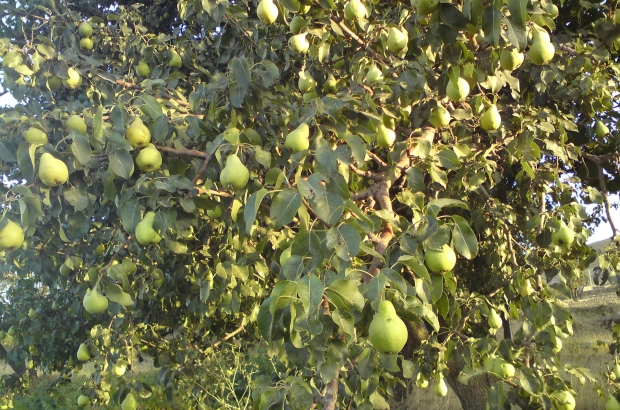- Daily & Weekly newsletters
- Buy & download The Bulletin
- Comment on our articles
EU to compensate pear growers for unpicked harvest
Pear growers who do not harvest their crop this year will receive the equivalent of 16c a kilo in compensation from the EU. The aid announced amounts to €6,440 a hectare. The deadline for growers to apply for compensation was yesterday.
The government of Flanders has advised growers not to harvest their pears for two reasons. Russia’s boycott of fruit imports from the EU means a large proportion of exports will go unsold; the effect of the resulting glut of fruit would be to depress prices, which are already low.
In addition, growers have to pay the costs of picking fruit, and if the crop is unsold they have no way of making back that cost.
Pears are the main Belgian product affected by the embargo, which also affects apples, pork, beef, milk, cheese and poultry. Ninety percent of Belgium’s fruit harvest comes from Flanders.
Flanders has about 9,000 hectares of pear trees, 5,000 of them in Limburg, and Flemish agriculture minister Joke Schauvliege wants 2,000 hectares to remain unharvested. It remains unclear how many growers will take the aid from Europe, especially as the pear harvest started 10 days ago, and in normal circumstances would now be half over.
The growers have been given permission to use ethephon, a plant growth regulator, which will cause pears to fall from the trees. The use of ethephon is authorised by the Food Safety Agency in strictly limited circumstances because of its risks. “It can cause burns in users, and there are risks to inhaling it,” said University of Leuven toxicologist Jan Tytgat. “Growers have to take sufficient precautions.”
Meanwhile, apple growers are waiting to see whether they will be offered EU aid. Normally, Flanders’ pear harvest would be carried out by temporary workers, many of them from Poland. The fear is that if the pear harvest turns out to be severely limited, pickers may move on to the north of France to work on the grape harvest there, just in time to leave apple growers short of labourers.
photo courtesy Alborzagros/Wikimedia



















